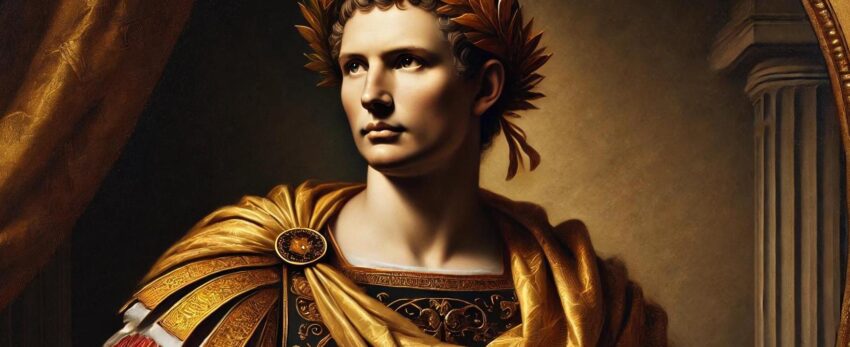Caesar’s Influence on Subsequent Leaders and Cultures
Julius Caesar’s impact extended far beyond his lifetime, influencing countless leaders and cultures across centuries. His legacy is evident in political, military, and cultural arenas, shaping the course of Western civilization.
Caesar’s military strategies and accomplishments have been studied and emulated by numerous military leaders. His campaigns in Gaul, chronicled in ‘Commentarii de Bello Gallico,’ showcased his tactical genius and ability to inspire loyalty among his troops. Leaders like Napoleon Bonaparte and George S. Patton admired Caesar’s boldness and strategic acumen, drawing lessons from his victories and failures.
Politically, Caesar’s ascent to power and his subsequent reforms left a lasting imprint on governance. His centralization of authority and restructuring of the Roman government paved the way for the imperial system. Augustus, his adopted heir, built on Caesar’s foundation to establish the Roman Empire, which became a model of centralized governance. The title ‘Caesar’ itself evolved into a symbol of imperial authority, used by subsequent rulers such as the Russian Tsars and German Kaisers.
Caesar’s influence is also evident in the cultural and ideological domains. Renaissance humanists revered him as a paragon of classical virtues, embodying both the intellect and martial prowess idealized in the era. Artists like Michelangelo and Shakespeare depicted Caesar in their works, reflecting on his complex legacy. Shakespeare’s play ‘Julius Caesar’ explores themes of power, betrayal, and ambition, cementing Caesar’s place in literary and cultural history.
In the realm of political philosophy, Caesar’s life and death sparked debates on the nature of power and the limits of authority. Thinkers like Niccolò Machiavelli scrutinized Caesar’s rise and fall, drawing insights into political strategy and leadership. Machiavelli’s ‘The Prince’ reflects on the necessity of pragmatism and the often harsh realities of political life, lessons drawn in part from Caesar’s career.
Caesar’s reforms had profound social impacts, many of which resonate to this day. His calendar reform, resulting in the Julian calendar, remained in use in the West until the Gregorian reform in the 16th century. The introduction of the leap year and the reorganization of the calendar months have enduring legacies in how we measure and perceive time.
The propagation of Caesar’s image and legacy was also facilitated by subsequent leaders who sought to legitimize their rule by associating themselves with him. Augustus skillfully used Caesar’s image to bolster his own authority, commissioning monuments and coins bearing Caesar’s likeness. This practice of political iconography set a precedent for rulers throughout history who used imagery to assert their legitimacy and connect themselves to revered predecessors.
In modern times, Caesar’s life continues to be a subject of fascination and study. His blend of military prowess, political ambition, and cultural impact makes him a multifaceted figure whose legacy provides rich material for historical analysis and popular culture alike. From academic studies to movies and novels, Caesar’s influence endures, reflecting the timeless nature of his story and its relevance to discussions on leadership, power, and human nature.
 |
 |
 |


